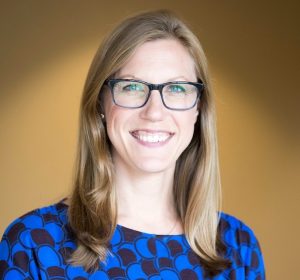Education for Earth’s Sake
How PopEd Supports Teachers and Inspires Future Generations
How does the Population Education program work within schools and support teachers who are educating today’s young people about population, sustainability and global citizenship? Join us for this engaging hour and find out. We’ll give you an insider look at PopEd’s teacher training workshops and demonstrate some of our favorite classroom activities.
About the Speaker
Carol Bliese, Senior Director of Teacher Programs at Population Connection
 Carol is Population Education’s Senior Director of Teacher Programs, overseeing the day to day functioning of the PopEd workshop program. She facilitates teacher training workshops throughout the U.S. and Canada, and has lead over 650 workshops in her 10+ years with the program. Carol is involved with curriculum development, teacher engagement marketing, and manages the program website and blog.
Carol is Population Education’s Senior Director of Teacher Programs, overseeing the day to day functioning of the PopEd workshop program. She facilitates teacher training workshops throughout the U.S. and Canada, and has lead over 650 workshops in her 10+ years with the program. Carol is involved with curriculum development, teacher engagement marketing, and manages the program website and blog.
Recording of Carol’s Presentation
Slides from Carol’s Presentation
“Education for Earth’s Sake: How PopEd Supports Teachers and Inspires Future Generations Presented by Carol Bliese
Q+A
Are you only able to provide workshops/webinars/lesson plans to schools that can afford it? Are there resources you would provide to low-income schools?
Many PopEd lesson plans, readings, and lesson packets are available for free download from www.PopulationEducation.org, where teachers will also find recordings of our public webinars and many blogs offering support around our resources. Our tailored workshops and webinars created directly for schools and districts do come with a modest fee that covers our expenses. Even so, we are always willing to work with schools that have limited budgets to find creative ways to meet their needs and support their teachers.
What are some of the most popular PopEd activities?
There are so many that different teachers like for different reasons. But I’ll force myself a limit of three!
- Panther Hunt is definitely a favorite – students act as predatory panthers that must collect enough prey to survive the season. Not all of the panthers survive and students explore predator-prey relationships, the impacts of resource availability and access, and are introduced to the idea of carrying capacity. Get the lesson plan.
- Who Polluted the Potomac? is an interactive story that gets used year-round, but especially around Earth Day. While the teacher reads a story that covers the history of the Potomac River, students add “pollutants” to a bowl of water representing the river, creating a strong visual representation of typical human modifications to a waterway. Watch a demo video here.
- Take a Stand is a “four corners” type lesson where students are confronted with intentionally controversial statements, and must decide whether they agree or disagree. It promotes lively discussion within the class as students defend their stance and try to persuade classmates. Get the lesson plan.
In my experience I’ve seen a correlation between families with several children (more than 2 or 3) and students who generally do not fare as well in school academically or socially/emotionally. Has this angle been addressed as an interwoven aspect to be included in the educational realm of Population Connection’s work?
PopEd’s work focuses on working with teachers to provide an interactive and engaging educational experience for all students. We do have lesson plans that cover the interconnectedness of population dynamics and various social/environmental issues. However, the extent of PopEd’s work would not address the personal aspects of a student’s home life.
How are you planning to market “population control” when so much media and popular culture communication today argues against population control?
First of all, we don’t use the term “population control” as many take this to mean the use of coercive means, as in China’s former one-child policy. We want students and the general public to know that we’re not advocating for governments to control people’s fertility. It’s really about providing the education, resources and freedom for people to plan their families. There are 218 million women around the world who don’t have the means to do this. Multiple studies show that when people (especially women) are enabled to freely make childbearing decisions and have access to modern contraceptives, they tend to choose to have smaller families.
As a program that works with the K-12 educational community, we teach about the benefits of achieving a sustainable balance of people, natural resources, biodiversity, ecosystem health, etc. For instance, the Next Generation Science Standards (NGSS) which have been adopted by most states, includes the core disciplinary ideas of “Human Impacts on the Earth” and “Human Sustainability” so we’re able to include our materials in a framework with which teachers are already familiar.
Referenced Resources
Population Riddles
Stork and the Grim Reaper
The Apple of Our Eye
World Population History – Interactive site and video
World of 7 Billion student video contest
“When We Help Women” – 2019’s winning student video
Food for Thought Activity
How Much Water Went Into Your Thanksgiving Feast?
Carbon Crunch Activity
Catch It If You Can
Learn about PopEd’s teacher training workshops here!
